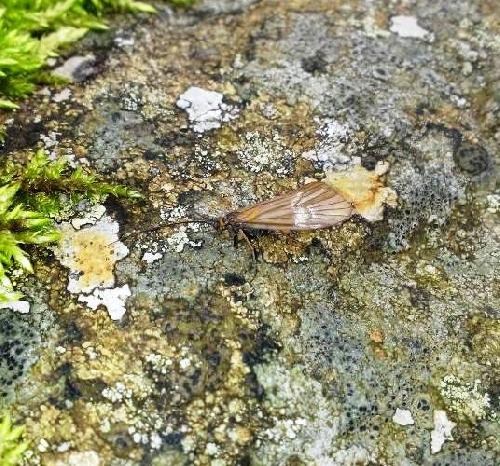The Republic of Kosovo turns out to be a unique European biodiversity hotspot after a second new species of aquatic insect has been described from the Balkan country. The new caddisfly was discovered by Prof. Halil Ibrahimi from the University of Prishtina, Kosovo, and international research team. They have their finding published in the open-access journal ZooKeys.
The new caddisfly species was found during a field trip, undertaken by the scientists in Sharr National Park in Kosovo. The aquatic insect belongs to the highly diverse genus Drusus, which, unfortunately, is under threat of extinction because of the ongoing pollution activities and mismanagement of freshwater ecosystems.
Called Drusus sharrensis, the new caddisfly has been named after the mountains where it was found. Thus, it is yet another example for a species, either animal or plant, bearing the same combination of names, and highlighting this range of mountains as a highly rich in rare and endemic species.
 The new caddisfly species Drusus sharrensis is shown in its natural habitat. Credit: Halil Ibrahimi
The new caddisfly species Drusus sharrensis is shown in its natural habitat. Credit: Halil Ibrahimi
"Even though just discovered, the species may be already threatened by illegal logging, water extraction from springs, expansion of touristic activities and several other anthropogenic factors," points out the author, "such as limestone and rock quarries operating in the Sharr Mountains in the vicinity of aquatic ecosystems potentially causing severe siltation."
"Additionally, recent development of a winter tourism facility at Brezovice, close to the type locality of the new species, may enhance local degradation of terrestrial and, particularly, aquatic ecosystems in the Sharr Mountains," he further explains. "The Brezovica Touristic Centre Development Project was designed by the Government of the Republic of Kosovo with support from the European Union to promote the touristic appeal and thus, economic importance of the area. This project will impact a total area of roughly 3,700 ha."
This is the second aquatic insect species discovered from Kosovo for the last twelve months and probably more are to be expected in this highly under-investigated area of the European continent.
source: Pensoft Publishers